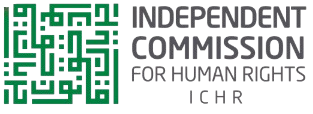Fact Sheet Issued by the ICHR and Bisan Center Over Two Million Palestinians Face the Risk of Dying from Thirst in the Gaza Strip
Fact Sheet Issued by the ICHR and Bisan Center
Over Two Million Palestinians Face the Risk of Dying from Thirst in the Gaza Strip
In monitoring the human rights and humanitarian situation in the Gaza Strip, and the ongoing war crimes committed by the Israeli occupation state against the sector, the Independent Commission for Human Rights "Ombudsman" and the Bisan Center for Research and Development issued a fact sheet titled "Over Two Million Palestinians Face the Risk of Dying from Thirst." The citizens in the Gaza Strip endure severe hardships in procuring water.
The paper focuses on the policies of dehydration employed by the occupying state aiming to kill Gazans by thirst, especially in the northern areas of the sector. Only 4% of the daily water needs of the sector's inhabitants are allowed to be brought in as part of humanitarian aid programs, with the introduction of small amounts of water limited to southern areas only. All alternative water wells were closed due to the lack of fuel. Continuous bombing has halted the water transport activities, targeting most remaining water tanks and wells, as well as the sewage lines. The cut-off of fuel supplies to the Gaza Strip and the destruction of infrastructure and sewage networks further exacerbates the crisis. In addition, the power outage and fuel shortage have caused crises in distributing water from groundwater wells to homes, coinciding with the complete halt of water transport and sale from private desalination stations due to fuel depletion.
The paper warns of the repercussions and effects of the sector's dehydration. With the consumption of salt water and poor sanitation conditions, there is a risk threatening the lives of children under six months, pregnant women, and people with kidney diseases. It also poses a threat to the spread of lice, smallpox, scabies, and severe diarrhea. It is expected that the rates of these diseases will increase unless water and sewage facilities are supplied with electricity or fuel to resume their operations. The World Health Organization has warned of the rapid spread of infectious diseases and bacterial infections due to the lack of water and the associated consumption of contaminated water, with more than 33,500 cases of diarrhea reported, more than half of which were among children under the age of five.
The paper concludes with a set of recommendations calling on all international organizations and bodies and free peoples to pressure for: stopping the ongoing war aggression and genocide against the Palestinian people in the sector; introducing humanitarian aid and opening commercial crossings to enable the private sector to import necessary goods; introducing the necessary amounts of fuel and restarting water desalination stations; stopping the inhumane and ongoing policies of the occupation aimed at continuing to deprive the population of their right to safe access to water, and operating the necessary water, health, and sewage facilities. For details
